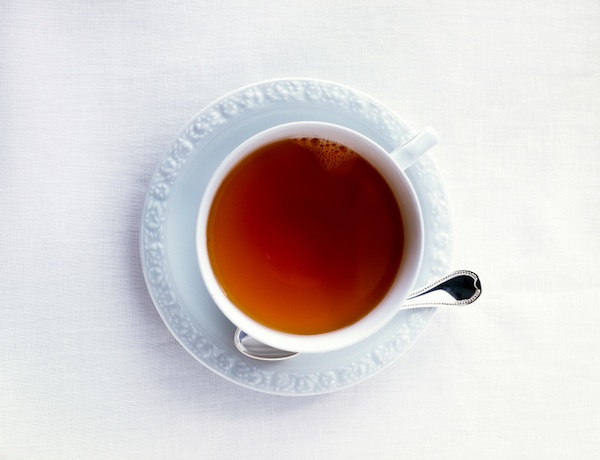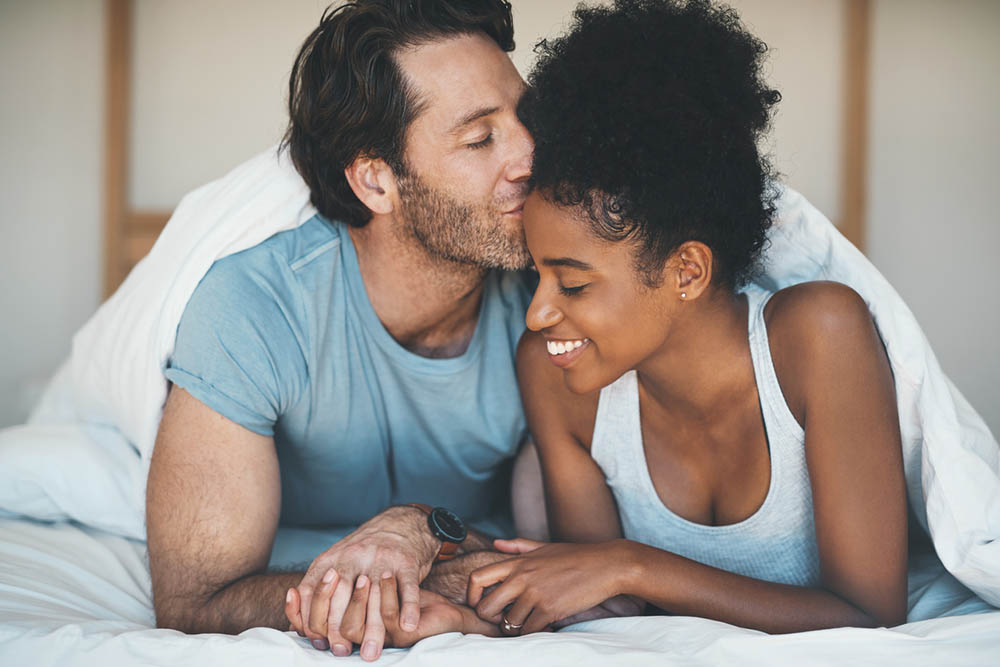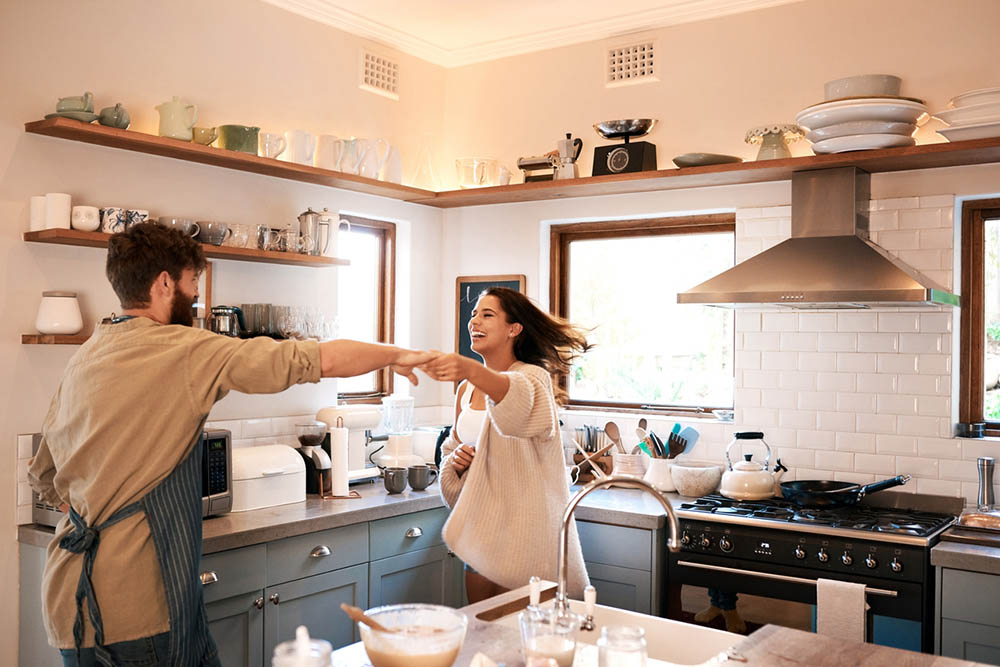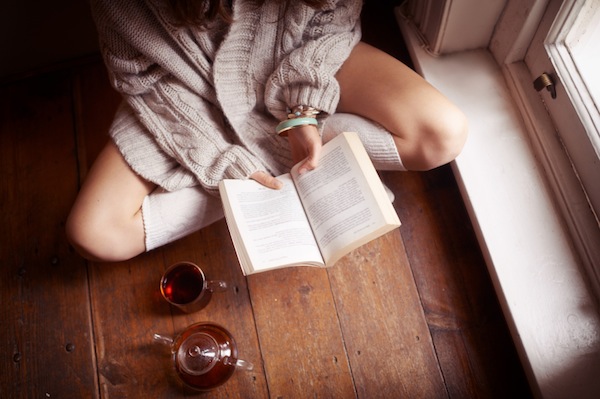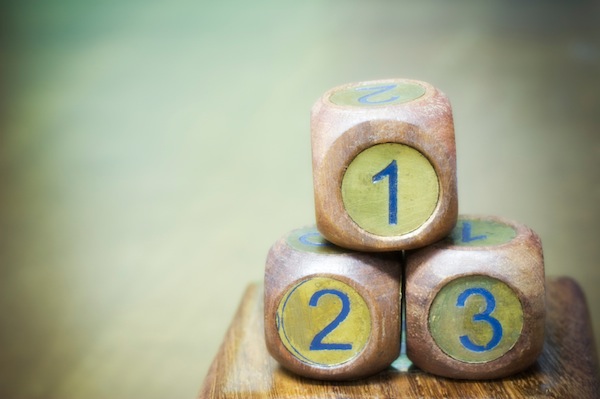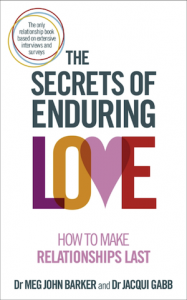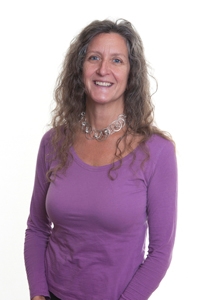Want to make your relationship stronger? Dr Meg John Barker and Prof. Jacqui Gabb, co-authors of The Secrets of Enduring Love bring you five things you can do today to make your relationship stronger
Everyone wants a relationship made of steel, yet sometimes it can seem an unreachable goal. Dr Meg John Barker, psychotherapist at The Open University, and Prof. Jacqui Gabb, professor of sociology and intimacy, at The Open University, highlight in their book The Secrets of Enduring Love the science to making a relationship last. Here are five of their simple hacks you can try today:
1. Make them a cup of tea
Dr Barker and Prof. Gabb carried out a research study with over 5000 people in long-term relationships. A key element to their findings revealed that small moments of kindness is highly important in a relationship. ‘People feel valued when their partner makes small gestures to show that they’re thinking of them’, they explain. Sometimes it’s the everyday small stuff that matters.
small moments of kindness is highly important in a relationship
Dr Barker and Prof. Gabb suggest that thoughtful gestures can start with a cup of tea. During their research, they found that the most common example of what people consider to be an everyday act of kindness was being brought a cup of tea.
The research showed that brining a partner a hot beverage was a common gesture in many places around the world, although other popular gestures also included packing your partners lunchbox each day, warming up the car on a cold winter morning, or going out in the rain to buy something for your partner.
Tip: Try taking one day to deliberately noticing the very small things that your partner does for you, and that you do for them. Let them know you’re grateful for these specific things.
MORE: 5 signs you’re in a toxic relationship
2. Share something intimate
Communication can be extremely powerful in relationships. Dr Barker and Prof. Gabb say that ‘talking intimately with each other can increase our feelings of closeness’.
In 1997, social psychology researcher Dr Arthur Aron of the Interpersonal Relationships Lab at Stony Brook University in New York, published his results in ‘The Experimental Generation of Interpersonal Closeness’. The study consisted of pairs of strangers asking each other 36 increasingly intimate questions, and apparently two of the participants fell in love with each other because of the experiment.
talking intimately with each other can increase our feelings of closeness
New York Times journalist Mandy Len Carton decided to repeat the study with a friend. She describes how they had a long conversation, based around the questions from the experiment, and this resulted in them falling in love too.
Dr Barker and Prof. Gabb say that relationship advice and relationship therapy also often focus on getting partners to communicate more. Both the 36 questions, and talking with a therapist, involve speaking about intimate and personal things we would not normally say, or that we’ve stopped talking about over time.
If you would like to try the 36 questions experiment yourself, you can find the questions here.
3. Channel your inner dancer
Like cooking, or watching TV, dancing is something people can do together. It can mean different things to different people. It can be a spontaneous moment of silliness and frivolity, it can be a deliberate way of holding the blues at bay, or it can be a moment of sexiness or physical intimacy.
One couple, who participated in Dr Barker and Prof. Gabb’s long term relationship research study, said that dancing and ‘being daft’ enabled them to step out of the heaviness of their lives and into something more lighthearted.
dancing and music can become a kind of anchor for a relationship
Like watching TV series together, dancing and music can become a kind of anchor for a relationship. These things can be something that partners enjoy looking back on together. Or you might share a smile when a certain song comes on the radio, or break into ‘your’ silly dance.
Tip: Try dancing together while getting ready in the morning as a way of welcoming the day
MORE: ‘Should I confess my affair?’
4. Give each other space
Dr Barker and Prof. Gabb say that a major challenge for those who live together is how to get ‘me-time’. People who live together have various ways of dividing up their physical space to get some time apart, and they also struggle when they have different preferences about personal space.
If you live with a partner, or have done in the past, think about whether you’ve had any separate space or time in the home, and whether you figured the out between you or whether it’s happened more spontaneously.
you could consider turing a cupboard under the stairs into a meditation chamber
Some people have a room in their house where they can spend alone time in. It could be a separate bedroom for each person, separate study areas, or one person having a room in the house and the other having a garden shed or garage workshop, for example. Some couples make certain rules regarding their ‘me-time’ rooms, for instance, if the other person is allowed to enter, or whether they should always knock on the door before entering.
If taking an entire room to yourself is not an option for you, then you could consider turing a cupboard under the stairs into a meditation chamber, or section off an area of a living room. Also, spaces outside the house can be used for /me-time’, such as a pub, library, or local cafe.
MORE: ‘Will my boyfriend become abusive?’
5. Find your ‘third element’
In The Secrets of Enduring Love, Dr Barker and Prof. Gabb highlight that a key finding of their research study is that there is some kind of ‘third element’ in many people’s relationship that helps to sustain them over time. They explain that these third elements work in a similar way to the third leg on a stool, in the sense that they will help to stabilise it.
there is some kind of ‘third element’ in many people’s relationship that helps to sustain them over time
There are many different third elements that are important to different people. In the study, the people who picked themselves and their partner as representatives of the other two chair legs also generally had at least one ‘third element’ in their relationship (the third chair leg) that helped to stabilise it.
For some people the stabilising aspect of the third element is having something which you share as a couple, like children, pets, religion, interests, or hobbies, and for many people the crucial third element is their friends. Many people place a lot of emphasis on sharing values, beliefs, tastes, ambitions and pastimes with their partner, seeing these as a key thing that connects them together.
For others it’s more important that they each have some separate third element in their lives as individuals. This can help them to maintain independence and autonomy. It can also relieve the pressure on a partner to meet all of their needs. For example, you can go on a cycling holiday with a friend, watch horror movies with your sister, do a yoga class on your own, or be silly and cuddly with your children, it matters less if your partner doesn’t share your enjoyment of one or all of these things.
For many people it’s about having both: some third elements which connect them together and some which they independently enjoy.
MORE: The retreat that claims to save your relationship in three days
Dr Meg John Barker is a psychology & counselling teacher at The Open University, sex and relationship therapist, activist, and writer.
Follow her on twitter: @megjohnbarker
Prof. Jacqui Gabb is professor of Sociology and Intimacy at The Open University, and Chair of the Editorial Board for the journal Sociological Research Online
Like this article? Sign up to our newsletter to get more articles like this delivered straight to your inbox.




